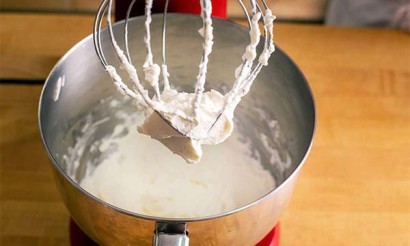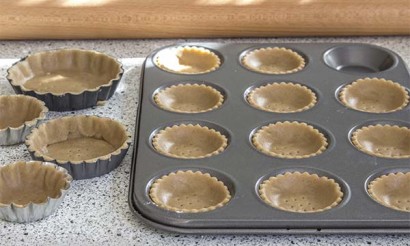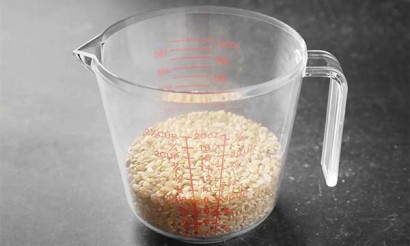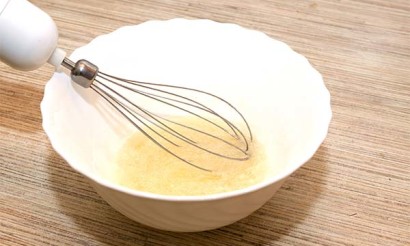How do you know if a raw or hard-boiled egg is bad?
It can be very frustrating when you break an egg into the rest of the ingredients while cooking and it turns out to be spoiled. You have to throw everything away and start the process all over again. Not only raw, but also hard-boiled eggs can go rotten, even if they are stored in the refrigerator. This can be caused by expiration date, improper storage conditions, or violation of the integrity of the shell. Sometimes an egg that is already spoiled can be brought in from the store.
- How to check a raw egg for freshness
- By ear
- By glance
- In water
- Smell
- How do you know if a hard-boiled egg is bad?
- Can I Eat Cracked Eggs?
- What harm can come from them.
- How to Store Eggs Properly
- Raw Eggs
- Boiled
- Shelf life of hard-boiled and raw eggs
- How to distinguish a raw egg from a hard-boiled one.
How to test the freshness of a raw egg.
Eggs bought in a package should always be labeled with a shelf life. But, more often than not, at home, putting the product in the refrigerator, the box is thrown out. Experienced housewives know a few ways how, without breaking the shell, to know if an egg is fresh or can no longer be used in food.
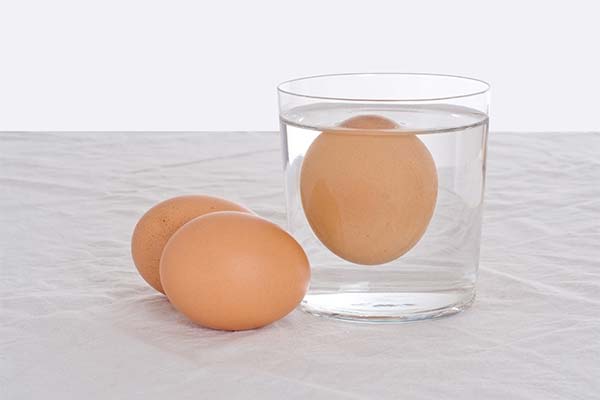
By ear.
Over time, the shell becomes porous. Liquid begins to evaporate through it and the air chamber increases in size. If you shake such an egg about your ear, you can hear a distinctive squelching sound. Fresh product will not make any sound.
Through the light.
You can also check the testicle with a lamp. The most convenient is to use a table lamp. You need to bring the egg to the light source and look at it carefully. If the yolk is located in the center, and no clots can be seen, then the product is quite fresh. Small darkened areas in the white tell you to use the egg in the next few days. Spoiled can be identified by large dark spots, a blood ring and a large air layer.
In water.
This method is considered the most reliable. Cold water should be poured into a container so that the egg floats freely in it. A fresh one should sink to the bottom and lie on it sideways. If it floats up with its blunt end, it has been laid for about a week. A product that is 2-3 weeks old will be about midway between the bottom of the pot and the surface of the water. A risen egg should be discarded without regret. It should not be consumed as food.
Smell.
Spoiled product begins to release hydrogen sulfide. Sometimes you can even smell it through the shell. This means that the egg has been spoiled for a long time.
In any case, eggs should be broken in a separate container before adding them to other ingredients. This will help not to spoil the future dish if the product turns out to be stale.
How do you know if a hard-boiled egg is bad?
There are also several ways to tell if a hard-boiled egg is fresh or if it is time to throw it away:
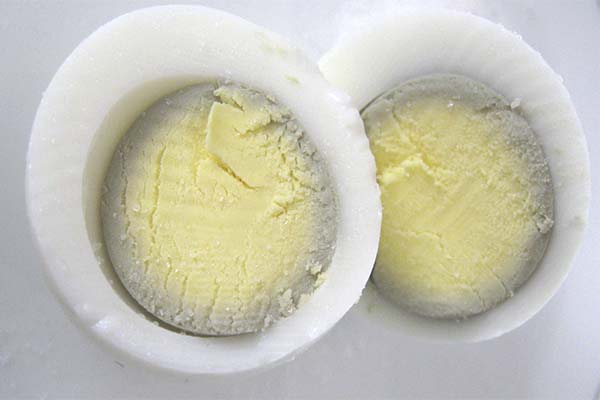
- If the shell is poorly peeled and comes off with part of the protein, then the product is quite fresh. You can eat it without fear. The easier the process, the longer it has been stored.
- When in doubt, you can free the egg from the shell and cut it in half. In a product that has begun to spoil, the protein becomes loose, takes on a gray hue. In some cases, green flecks may appear.
- The pungent, unpleasant smell that you can smell when you remove part of the shell will tell you that the egg is hopelessly spoiled. The only thing to do with it is to throw it away as soon as possible.
You should not cook a lot of eggs beforehand, unless you plan to eat them or use them to prepare other meals. The shelf life of such a product is limited.
Can I eat rotten eggs?
If there is the slightest suspicion that an egg may be stale, it is not worth eating. Eating such a product can end badly. This is especially true for children and people with weakened immune system.
What can cause damage
Eggs, as a cause of poisoning from low-quality products, is in second place after milk and its derivatives. In most cases, the case ends with diarrhea and vomiting, but the consequences can be much more serious. Therefore, it is better not to self-medicate, but immediately go to a medical facility.
If a raw or soft-boiled egg is eaten, there is a risk of contracting salmonella bacteria. Usually they are on the shell, but when the product starts to spoil, they can get in. The illness is manifested by a sudden rise in temperature and vomiting. Headaches, diarrhea, and abdominal cramps may occur. Symptoms occur within three days. Without proper medical care there is a high risk of complications: kidney failure, enlarged spleen, peritonitis and inflammation of the joints.
In severe cases, stale egg poisoning can lead to infectious-toxic shock and patient death.
How to Store Eggs Properly
Observing the conditions for the proper storage of eggs can extend their life without harming health. The first thing to do is to check the integrity of the shell. The slightest chips and microcracks greatly reduce the time in which eggs can be eaten. They should be eaten first.
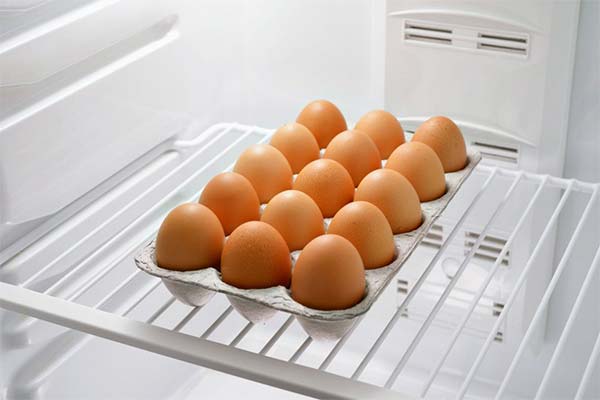
Raw Eggs
The shell by nature itself is protected by a special shell that prevents pathogenic bacteria and germs from getting under it. Therefore, eggs should never be washed before they are put away for storage. This process significantly reduces the period in which you can use the product. If you buy eggs from farmers and they are dirty, you can wipe them with a dry cloth. Act carefully so as not to damage the shell.
Eggs can be kept at room temperature or in the refrigerator. In the second case, they will be preserved much longer. But you should not put them on the door of the electric appliance. Temperature fluctuations when opening-closing the refrigerator, excessive vibration is not the best effect on the product. It is best to put the eggs on the middle shelf.
Boiled
Boiled eggs can be used both as a separate dish and as an ingredient in many salads. Therefore, many people try to prepare them in advance, so as not to waste time later.
- It should be remembered that you can put away for storage only dry product. Therefore, before folding boiled eggs, they should be wiped with a paper towel.
- The optimum temperature that prolongs the shelf life of such a product is 2-4 ° C. Therefore, they should be placed in the refrigerator next to the freezer.
- Cleaned eggs are better placed in a sealed container. Otherwise they can easily absorb other smells.
Shelf life of raw and hard-boiled eggs
The period for which you can store eggs differs, depending on the type and other parameters.
- For those on sale from the poultry farm, it does not exceed 1 month.
- Homemade can be used within 3 months.
- The least stored dietary eggs - only one week.
- Hard-boiled and unpeeled eggs should be used 10-14 days, while eggs without the shell in just three days.
- Boiled hard-boiled eggs should be eaten no later than the next day.
How to distinguish a raw egg from a hard-boiled egg
In some cases it can be difficult to remember which egg is in the refrigerator, raw or boiled. Cracking to check it is not always convenient.
The easiest thing to do in such a situation is to unwind the egg on a flat surface. Just do not give it a lot of acceleration, or it may roll off the table. A hard-boiled egg will take noticeably longer to spin, since it has a dense mass inside. A raw one will stop very quickly.
«Important: All information on this site is provided for informational for educational purposes. Before applying any recommendations, please consult with a specialist. specialist. Neither the editors nor the authors are liable for any possible harm caused by materials."


